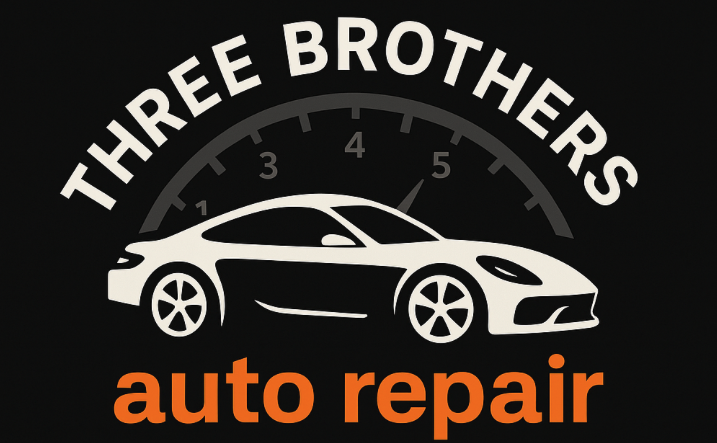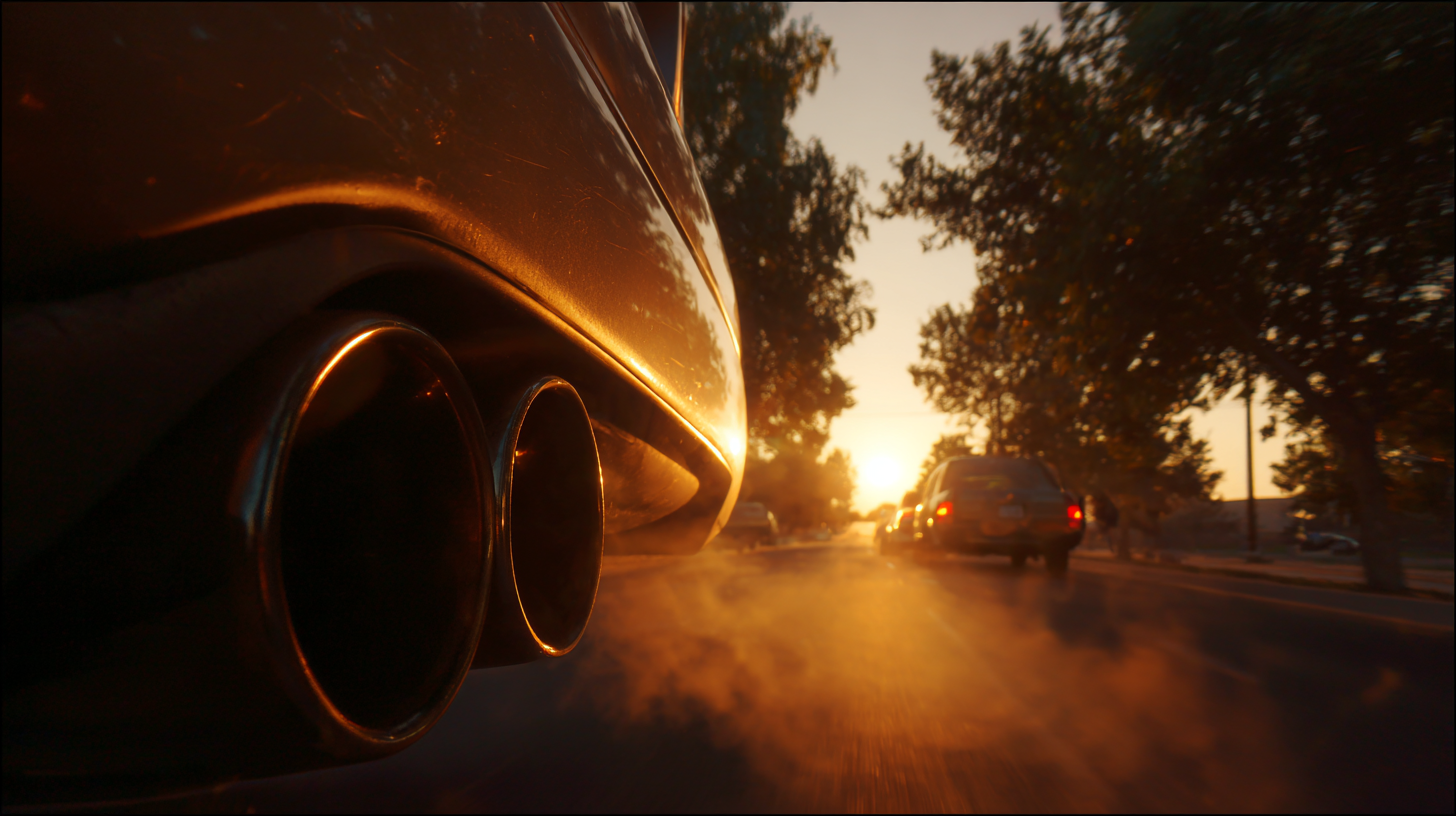At Three Brothers Auto Repair in New Jersey, we know how critical a catalytic converter is to your vehicle’s health and to public safety. Catalytic converters are part of the exhaust system that cleans up toxic emissions before they leave your tailpipe. In simple terms, they convert dangerous gases (like carbon monoxide, hydrocarbons, and nitrogen oxides) into less harmful substances. Driving without one means those pollutants go straight into the air, harming the environment and breaking emissions laws. In fact, even short-term driving without a converter is not worth the risk. We explain why: legal fines, engine damage, and health hazards. Alarmingly, catalytic converters have become targets for theft due to the precious metals inside. If yours is stolen, driving while awaiting a replacement only multiplies the dangers we’ve outlined below.
- Why Catalytic Converters Are Essential
- Legal Consequences of Removing a Catalytic Converter
- Mechanical and Health Dangers of Going Catless
- Key Differences: With vs Without Catalytic Converter
- Keeping Your Car Legal and Safe on New Jersey Roads
- Can you safely drive a car without a catalytic converter?
- Is driving without a catalytic converter bad for your car?
- Is it illegal to drive without a catalytic converter?
- What happens if you remove the catalytic converter and drive it?
Why Catalytic Converters Are Essential
Catalytic converters were introduced in the 1970s to meet new emission standards. In our shop, we explain that these exhaust components actively reduce pollution. They contain a honeycomb of precious metals that converts toxic exhaust gases into safer substances. For example:
-
Carbon Monoxide (CO) → Carbon Dioxide (CO₂) — removes a poisonous gas.
-
Unburned Hydrocarbons (HC) → Water (H₂O) + CO₂ — oxidizes fuel vapor.
-
Nitrogen Oxides (NOₓ) → Nitrogen (N₂) + Oxygen (O₂) — reduces smog-forming gases.
By converting these pollutants, the catalytic converter greatly improves air quality. Without it, a vehicle becomes a direct source of air pollution, spewing CO, HC, and NOₓ unchecked. At Three Brothers, we always inspect the converter during maintenance. If it’s failing, we advise prompt replacement. In short, a working catalytic converter is essential for both your engine and the environment.
Legal Consequences of Removing a Catalytic Converter
At Three Brothers Auto Repair, we make sure our work follows federal and New Jersey law. Tampering with emissions controls is strictly prohibited. Federal regulations (Clean Air Act) explicitly outlaw removing or disabling a catalytic converter. New Jersey law echoes this: the state Department of Environmental Protection warns that “it is illegal under state and federal law to tamper with the emissions system of any vehicle”. The consequences include:
-
Federal and State Anti-Tampering Laws — Removing a converter is illegal under the Clean Air Act and NJ regulations.
-
Hefty Fines and Penalties — NJ can fine violators up to $30,000 per offense for tampering.
-
Failed Inspections — Without the required converter, your vehicle will fail the NJ emissions test and cannot be registered.
-
Warranty Voided — Tampering also voids your vehicle’s warranty.
In short, driving without the required catalytic converter invites serious trouble. You could face steep fines or even impoundment for violating emissions rules. Operating a tampered vehicle is simply not worth the legal risk.
Mechanical and Health Dangers of Going Catless
Even if your car runs without a catalytic converter, serious problems will follow. In our shop, we’ve seen the direct impact:
-
Engine Performance Issues — The engine control module is calibrated to expect a working converter. Without it, performance suffers: your car may lose power, misfire, or burn more fuel.
-
Loud Noise and Vibration — The converter dampens exhaust noise. Without it, the exhaust roar increases dramatically and can violate local noise ordinances. This loud sound often attracts unwanted attention from law enforcement.
-
Increased Wear and Heat — Changed exhaust flow raises temperatures and can damage sensors, the muffler, or the engine itself.
-
Health Hazards & Warning Lights — A missing converter means no barrier to toxic gases. Exhaust (including carbon monoxide) can leak into the cabin, causing headaches, nausea, or worse. Your car’s computer will detect this and trigger the Check Engine light (often code P0420), signaling an emissions fault.
If a converter is stolen or broken, we urge you to park it or tow it, not drive. The risk of engine damage and carbon monoxide poisoning far outweighs any short-lived benefit of driving without it.
Key Differences: With vs Without Catalytic Converter
Below is a quick comparison of key aspects when driving with a catalytic converter versus driving without one:
| Aspect | With Catalytic Converter | Without Catalytic Converter |
|---|---|---|
| Emissions | Meets legal standards; converts CO, HC, NOₓ into cleaner gases | Releases raw pollutants (CO, HC, NOₓ); fails emissions requirements |
| Legal Status | Required by law; vehicle is compliant | Illegal to operate; subject to fines (up to $30K) and penalties |
| Engine Performance | Normal power and fuel efficiency | Reduced power, more misfires, worse fuel economy |
| Exhaust Noise | Quieter operation (converter muffles sound) | Much louder exhaust; may violate noise ordinances |
| Inspection Outcome | Passes NJ emissions inspection | Fails inspection; vehicle cannot be registered |
| Resale Value | Normal resale value | Significantly reduced; missing converter signals poor maintenance |
| Health & Safety | Standard risk levels | Increased risk of carbon monoxide exposure and exhaust fumes |
Note: This comparison highlights why we always advise keeping the catalytic converter intact. Driving without one means serious legal and practical risks in every category.
Keeping Your Car Legal and Safe on New Jersey Roads
At Three Brothers Auto Repair, we urge every New Jersey driver to keep the catalytic converter intact. Driving without it not only violates federal and state law, it also leads to fines, failed inspections, engine trouble, and health problems, and it typically voids your vehicle’s warranty. If your converter is missing or damaged, park the car and call us — we will replace it promptly to restore your vehicle’s emissions system. We encourage drivers to keep their converters in good working order: it helps keep the air cleaner and our communities safer. Our team knows New Jersey emissions regulations and ensures your car complies. We provide prompt replacements to keep your vehicle safe and legal. Thank you for trusting Three Brothers Auto Repair; we value your safety. Remember, delaying repairs only hurts your wallet and the environment — your satisfaction and safety are our top priorities.
-
Can you safely drive a car without a catalytic converter?
Technically, yes — your car can operate without a catalytic converter, but it’s not safe or legal in most areas. Driving without one increases harmful emissions and can damage other parts of your exhaust system over time.
-
Is driving without a catalytic converter bad for your car?
Yes. Without a catalytic converter, the engine and exhaust system lose balance, which can cause poor performance, check engine lights, and higher fuel consumption.
-
Is it illegal to drive without a catalytic converter?
In nearly all U.S. states, yes. Removing or bypassing a catalytic converter violates federal emissions laws and can result in fines or failed inspections.
-
What happens if you remove the catalytic converter and drive it?
Your car will sound louder and produce more exhaust fumes. You might also experience reduced engine efficiency, more frequent repairs, and legal consequences.

